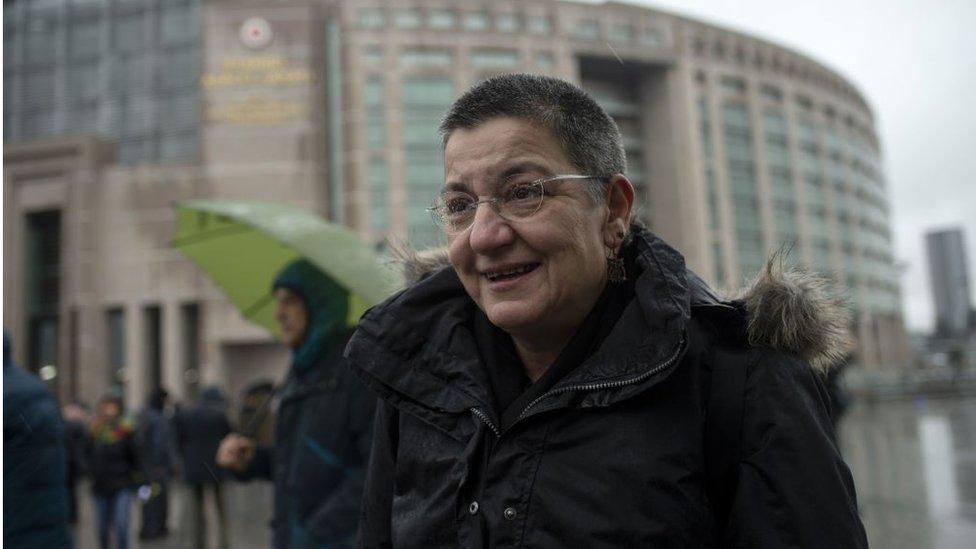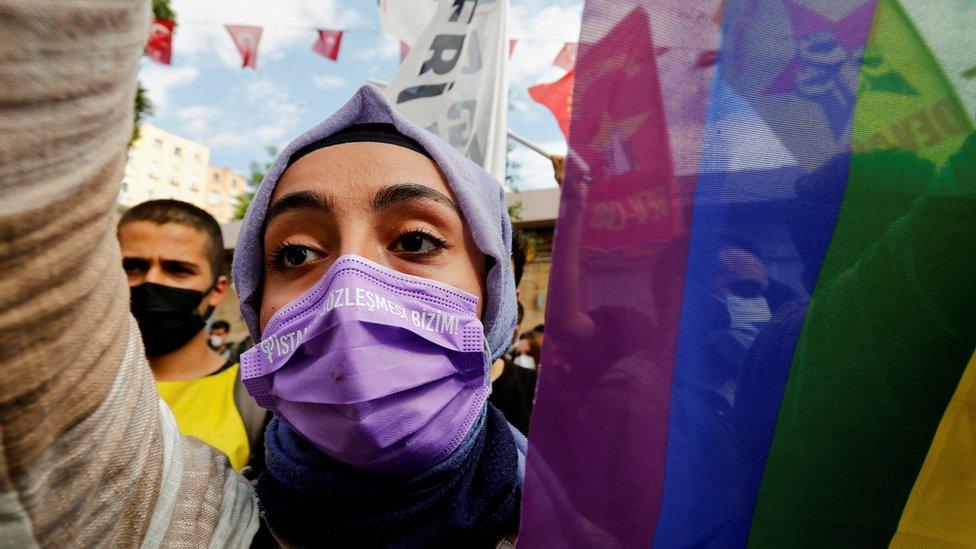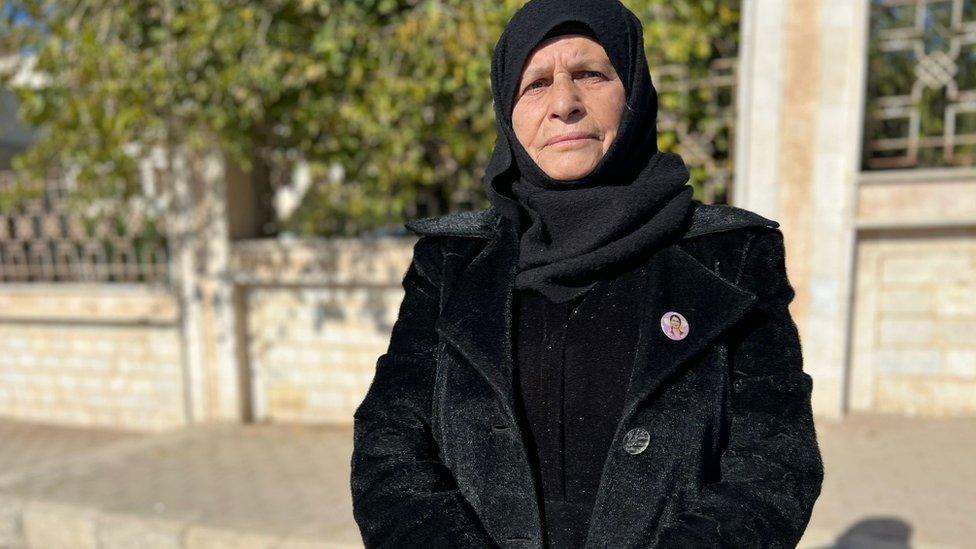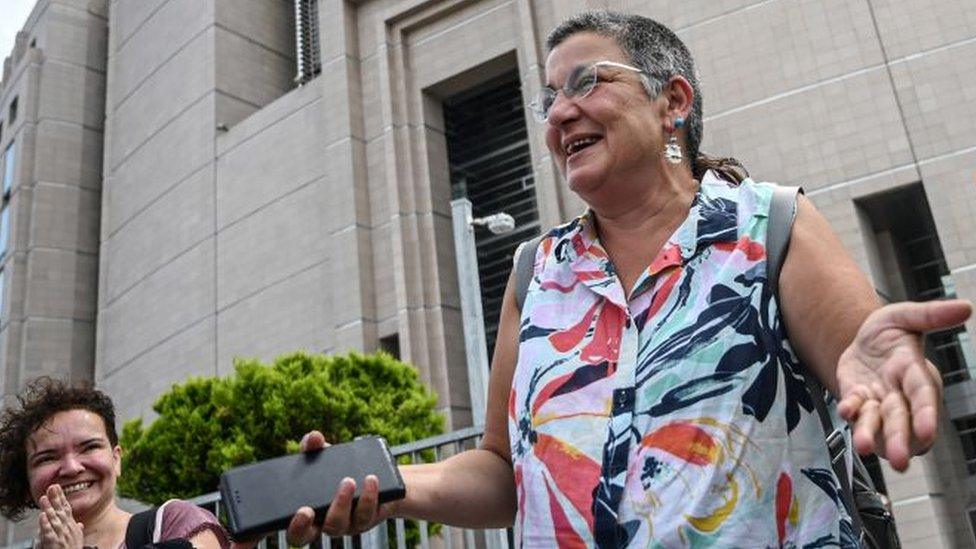Turkey doctors' chief sentenced over call for chemical weapons inquiry
- Published

Forensic specialist and human rights activist Sebnem Korur Fincanci was arrested in October
The head of Turkey's medical association has been convicted of spreading propaganda for terrorists over her call for a probe into the army's alleged used of chemical weapons against Kurdish militants.
Dr Sebnem Korur Fincanci was sentenced to nearly three years in jail but under Turkish law is eligible for release.
She is expected to be freed Wednesday - more than two months after her arrest.
Rights groups say her detention was a bid to silence her and other activists.
Ms Fincanci, a forensic specialist and a leading human rights activist, was arrested after calling for an independent investigation into claims that the Turkish military used banned chemical weapons against Kurdish militants in northern Iraq. She made the comments on pro-Kurdish media.
The PKK, which the EU and the US regard as a terrorist organisation, released video in October that it said showed Turkish troops releasing a substance into a cave as well as its effects on a male and female fighter. The group identified 17 of its members who it said had been killed recently by such weapons.
The Turkish government strongly denied using chemical weapons against the PKK and Ms Fincanci was accused of spreading terrorist propaganda and insulting Turkey.
She was convicted to two years and eight months in jail on Wednesday after just three hearings, and without - her lawyers say - due process. However, people are rarely imprisoned in Turkey for jail sentences under three years.
In a brief address to the court at her final hearing, Ms Fincanci said her trial was politically motivated, and was targeting democratic values and freedom of expression.
The BBC's Zeynep Erdim was in court and said the case was heard in a small room, with just over 100 people present. Supporters of Ms Fincanci chanted "this is only the beginning, we will carry on fighting" and "the Turkish Medical Association will not be silenced".
'Sends message to be silent'
Human rights organisations here and abroad see the trial as an attempt to silence her and anyone else who dares to question the authorities.
Emma Sinclair, the head of Human Rights Watch in Turkey, said she is glad that Ms Fincanci is being freed but that her case "sends a strong message to everyone to be silent."
Ms Sinclair added that she feared for other board members of the Medical Association of Turkey (TTB), who could face similar action if found to be members of a terrorist organisation.
The Medical Association tweeted that with Ms Fincanci's return to the organisation meant that she "will play our [sic] role at the turning point in front of our country.
"We will ensure that neither the TTB nor our country surrenders to the darkness!" it added.
Turkey last year adopted a new media law requiring jail terms of up to three years for disseminating false information about Turkish security that would trigger "fear and disturb public order". Amnesty International described the law as "another dark day for online freedom of expression and press freedom in Turkey".
The Turkish justice system has also drawn ire from some Western countries. Turkey says its courts operate independently, but the US State Department has been highly critical of Turkish justice in the past saying there is "continued judicial harassment of civil society, media and political leaders" - particularly in the wake of the life sentence given to prominent philanthropist and campaigner Osman Kavala last April.
President Recep Tayyip Erdogan has in recent years moved to extend his grip on media outlets. Last October, Turkey introduced a "disinformation law" allowing those accused of spreading "false news" to be jailed for up to three years. And in the 2022 World Press Freedom Index, compiled by Reporters without Borders, Turkey came in at number 149 out of 180.
There are fears of an even greater crackdown on free speech by Mr. Erdogan, who faces elections for the presidency and parliament this year.
- Published5 January 2023

- Published20 November 2022

- Published26 October 2022
